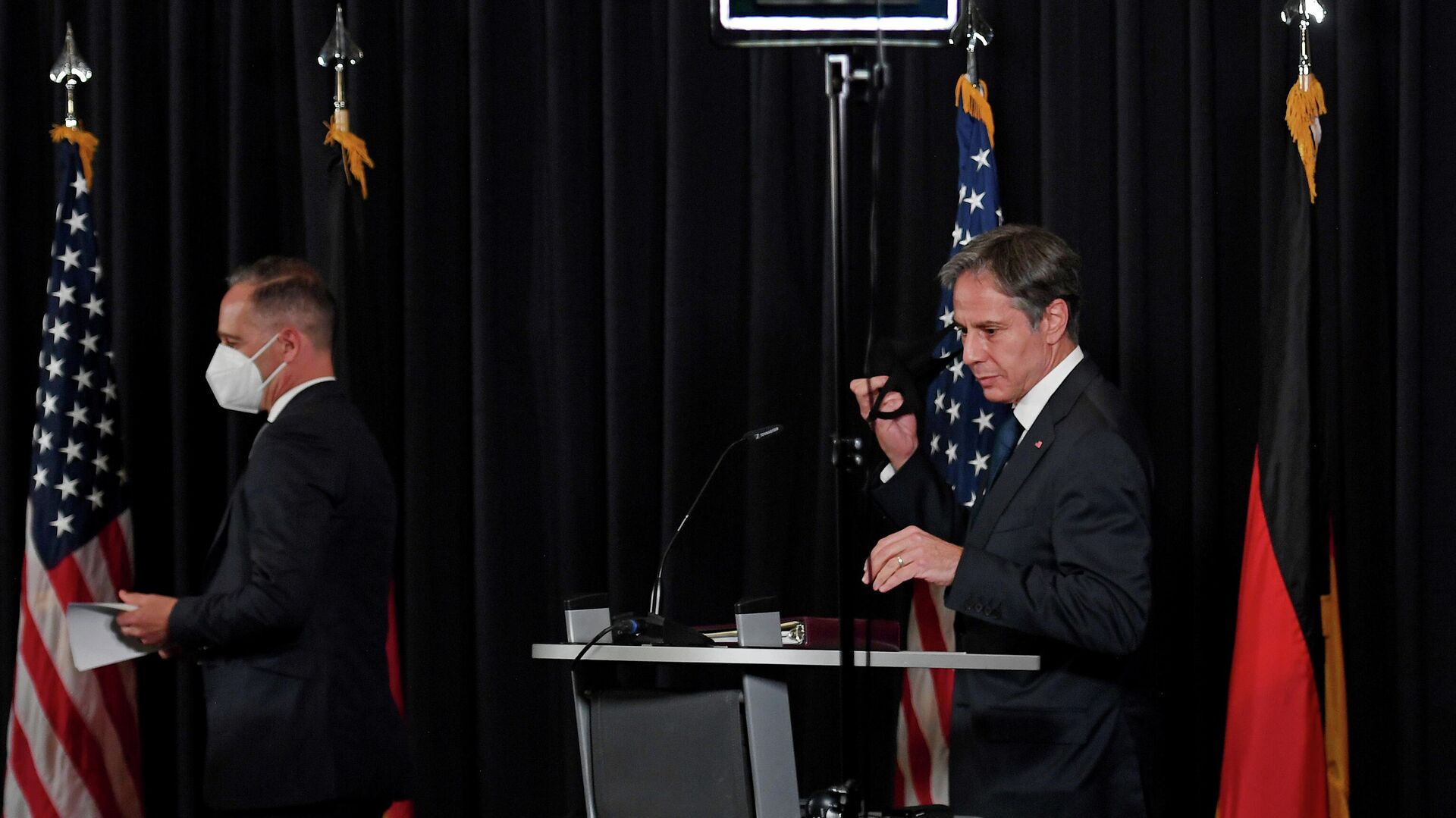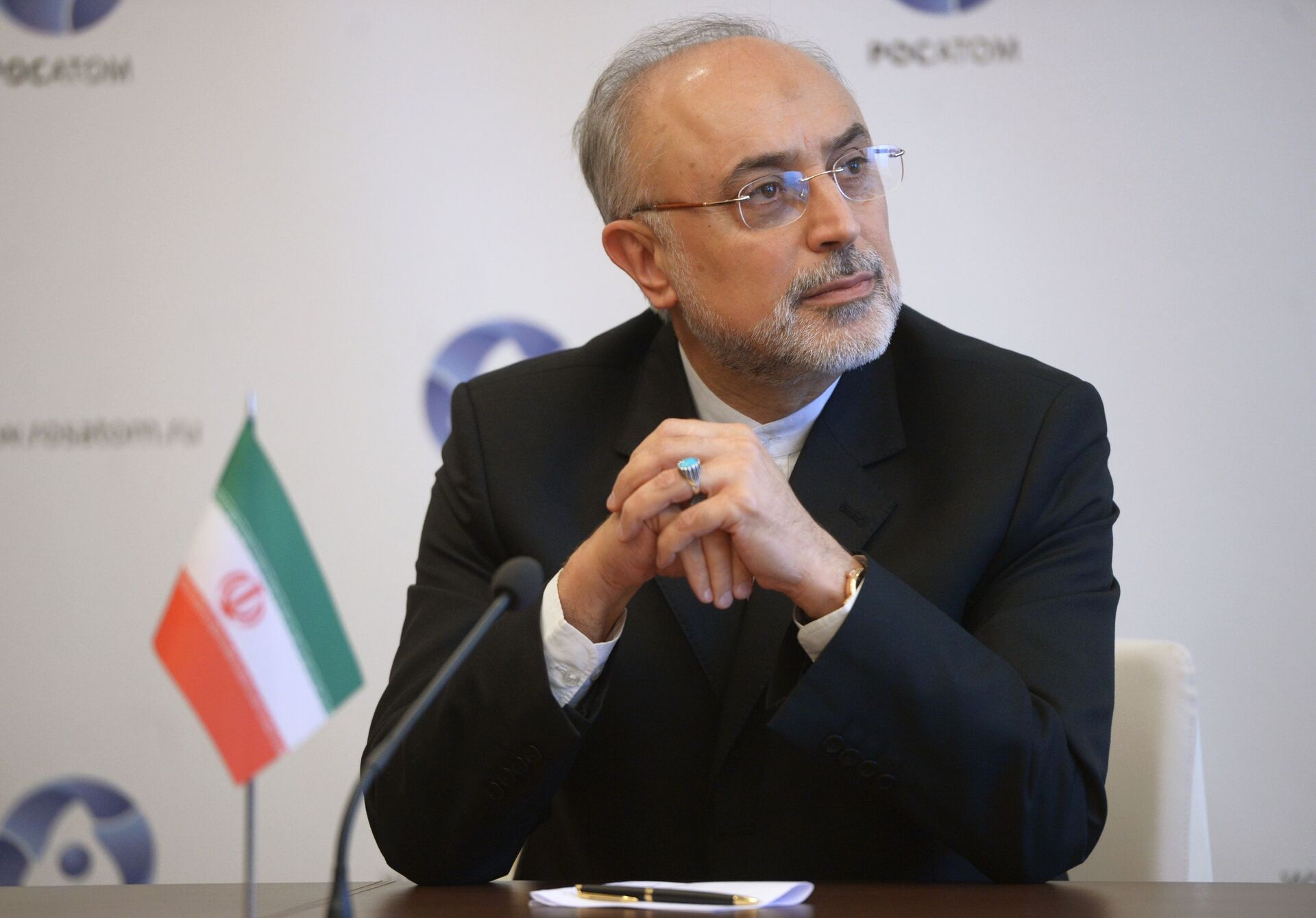Blinken Says Delay in Nuclear Talks With Iran May ‘Not Reproduce Benefits’ of JCPOA Revival

© REUTERS / POOL
Subscribe
Beginning on 6 April this year, the US and Iran have held six rounds of indirect negotiations on re-establishing the Joint Comprehensive Plan of Action (JCPOA), also known as the nuclear deal. The process stalled without substantial advances after a new Iranian president came into power last month.
US Secretary of State Antony Blinken warned Iran on Wednesday that there is little time left to rearrange the nuclear agreement, urging Tehran to rush JCPOA negotiations that ended earlier in June with no additional date assigned.
“I’m not going to put a date on it but we are getting closer to the point at which a strict return to compliance with the JCPOA does not reproduce the benefits that that agreement achieved,” Blinken said at a presser after negotiations with his German counterpart Heiko Maas.
Maas also noted that a delay of two or three months suggested by Iran “is a time frame that is much too long for us.”
Responding earlier to pressure, Iran noted that “talks will not succeed if they continue under duress."
“The other party understands that it takes two to three months for the new administration to establish and do planning for any sort of decision,” state the new Iranian Foreign Minister Hossein Amirabdollahian, referring to the gap following Biden’s inauguration and the beginning of the Vienna talks.
The Trump administration withdrew from the agreement in May 2018, immediately reimposing a number of strict economic sanctions, despite IAEA reports noting that Iran had been complying with its nuclear obligations. Over the next year, Iran has urged JCPOA members to facilitate the lifting of restrictions as the country has suffered economic difficulties.
Before the assassination of Iranian nuclear physicist Mohsen Fakhrizadeh in late 2020, Tehran had not allowed any significant violations of the agreement. Soon after the killing, however, Iran increased the degree of uranium enrichment, installed more advanced centrifuges and produced uranium metal.
In February 2021, the Islamic republic threatened to halt IAEA inspections under the JCPOA, if sanctions were not removed. On February 21, the parties entered into a three-month agreement to continue some of the checks. In May, these agreements were extended for another month, but since 22 May, Iran has denied the IAEA access to data collected by cameras inside nuclear facilities, and has threatened to delete videos of the past three months.

Academician Dr. Ali Akbar Salehi, Vice President for Nuclear Energy and President of the Atomic Energy Organization of Iran
© Sputnik / Grigory Sysoev
/ According to the latest IAEA report, Iran has recently quadrupled its reserves of highly enriched uranium, having at its disposal 10 kilograms of highly enriched, at up to 60 percent, uranium, while at the time of the previous IAEA assessment in May this year it was reportedly about 2.4 kilograms. The amount of 20-percent enriched uranium also increased, from 62.8 to 84.3 kilograms. IAEA agents also raised concerns over Tehran’s ban on certain inspections.
Hopes that the agreement would be restored rose after the new US administration came into office and indirect negotiations started in Vienna in April. Iran announced that its nuclear violations would be quickly reversed when sanctions are lifted.
The sides have not achieved any substantial success, as Washington is demanding that Iran immediately comply with JCPOA provisions, while Tehran claims it is the US that must make the first concession, as it was first to leave the nuclear agreement. Negotiations halted after a new Iranian president was elected in June.


